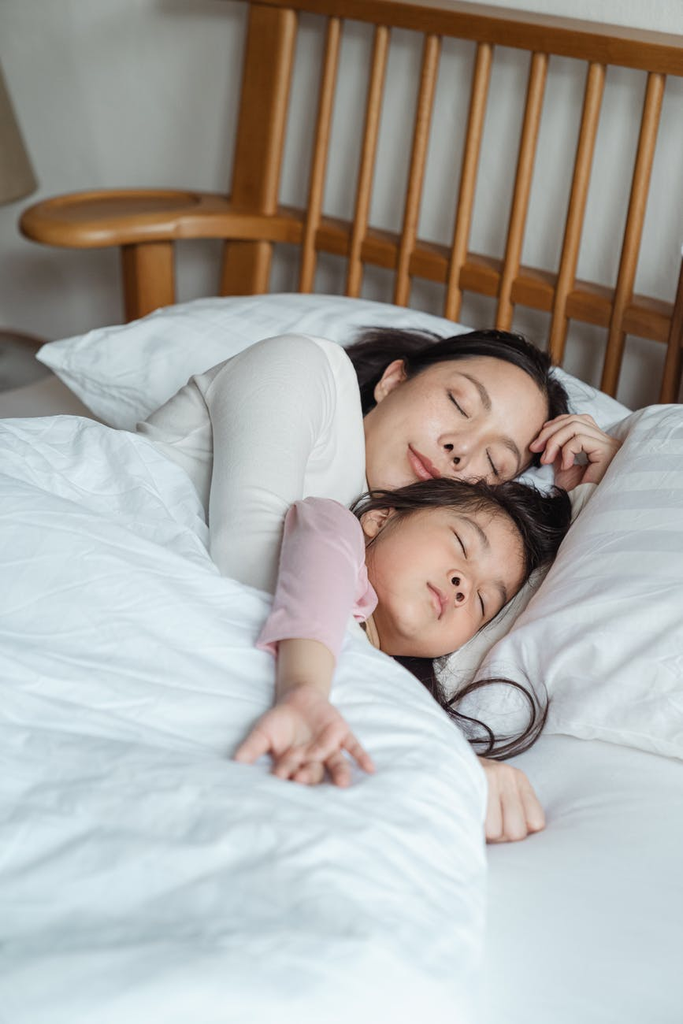As a parent, you know the drill. After dinner, it’s time to wash up, hop in bed to read your child a bedtime story, and on some evenings, you may fall asleep alongside them. But if you’ve woken up from your child snoring, sleepwalking, or sleep talking, you may be wondering if they’re suffering from a sleep disorder such as sleep apnea.
While obstructive sleep apnea is more prevalent in adults than children, 1% - 5% of children are diagnosed with sleep apnea. Follow along as ApneaMed helps explain what sleep apnea is, the causes, and warning signs to watch out for.
What Is Sleep Apnea and What Are the Causes?
Obstructive sleep apnea is a sleep disorder that causes disruptions in a person’s breathing and occurs when the soft palate collapses and blocks the airway. These breathing disruptions are often displayed as snoring, choking, or gasping for air but can be shown through other telltale warning signs as well. It’s recommended that If you notice your child snoring more frequently, you have them checked out by a sleep physician to confirm if sleep apnea treatment is needed for them to get a good night’s sleep.
If your child has enlarged tonsils, they have a higher risk of suffering from obstructive sleep apnea. Tonsil size can vary due to genetic, inflammation, or infection. As a result, it causes a blockage in your child’s airway that makes it difficult for them to breathe throughout the night adequately.
As the tonsils obstruct the airway, your child will gasp for air in an attempt to breathe. Obesity is another cause of sleep apnea in children. Because an obese child has additional weight on their neck, they will have extra pressure on the soft tissues when lying down. This pressure increases the change of the soft palate collapsing and blocking the airway while they sleep.
Signs Your Child Has Obstructive Sleep Apnea
While snoring, choking, or gasping for air are the most common signs of sleep apnea in children, not all children will exhibit symptoms the same way. Your child should undergo a sleep study if you notice any of the following sleep apnea symptoms:
- Mouth breathing
- Snoring
- Coughing or gasping for air
- Night sweats
- Restlessness
- Sleepwalking
- Sleep talking
- Sleep terrors
- Bedwetting
- Daytime drowsiness
- Behavior issues
- Irritable moods
- Concentration problems
- Headaches
Keep in mind that many of these symptoms can be related to other issues — or be unrelated altogether. However, if you notice one or more of these warning signs occurring consistently, it’s better to get your child looked at so you can get the necessary treatment.
Sleep Apnea Test
Your child’s health is of the utmost importance, which is why you must get them checked out by a sleep specialist as soon as you notice the warning signs of sleep apnea. Through a proper treatment plan, your child will feel more rested and alert throughout the day, often making it easier for them to interact both at home and school.
We know being a parent is a busy job, but scheduling a lab sleep study is of the utmost importance if you suspect your child has obstructive sleep apnea. Following the sleep study, a sleep physician will be able to provide a recommended treatment plan if diagnosed with sleep apnea that will allow your child to breathe easier and sleep more soundly.
ApneaMed provides sleep apnea equipment for those ages 18 and older. If you have any questions about our at-home sleep apnea test or our sleep apnea treatment equipment, contact our team to learn more.

